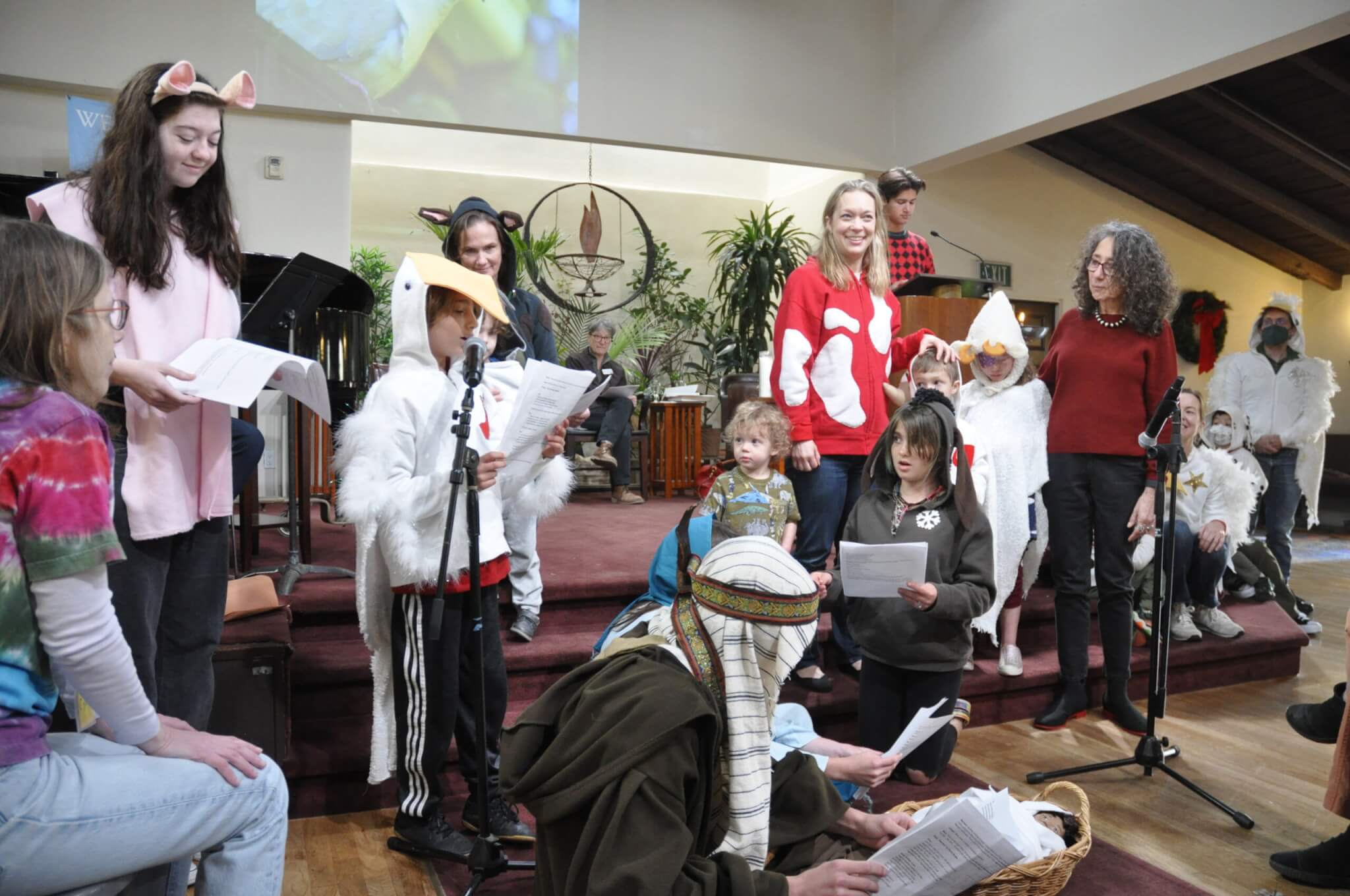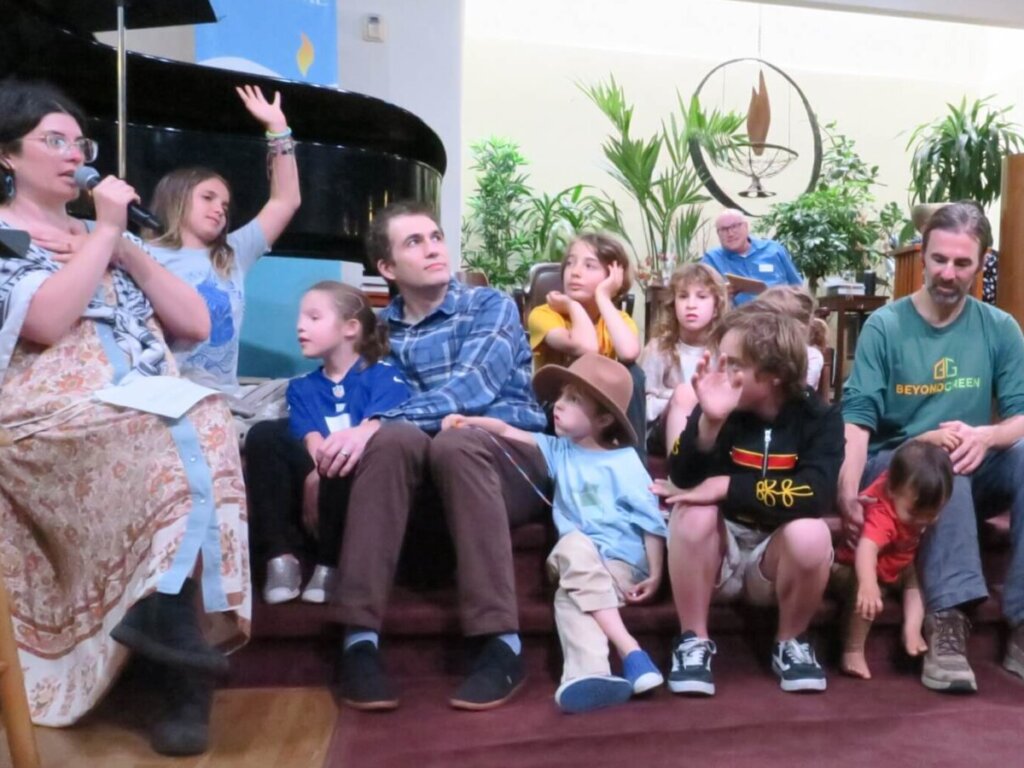The traditional Friendly Beasts returned to grace our chancel last weekend, introduced for the first time by Jessica TenHave Place, now our Director of Multi-Generational Religious Education.
The story never gets old, no matter how many times it is told. No matter how you choose to believe it, as a historical fact or as a metaphor for the saving of a struggling world, somehow it resonates in all of us.
Maybe it’s the music, maybe it’s the animals, maybe it’s the struggle of a poor married couple searching for a place to stay. Maybe it’s that we know it so well.
I may enjoy a professional rendering of the story, but I am delighted to see our children enact it.
In costume.
“This little town of Bethlehem sure is crowded,” the Dove remarks, “Everyone is traveling for the census,” she adds, staying true to the historical record. And “no room at the inn, even for a mouse! Squeak Squeak.”
Yes, the Friendly Beasts are in rare comedy form. “Nobody better come and HOG our bed of hay,” warns Pig.
Donkey, who’d been carrying Mary to Bethlehem, tries to bring some sense to the matter. “Please, friends. We have nowhere to stay! Is there room for us here?”
Sheep is unmoved. No vacancy, pal. Too baaaaaaad!
Donkey persists. “You don’t understand — this lady is about to have a baby!” he says as we overhear Mary’s breathing exercises.
Finally, Mouse and Pig see the light and relent. “These people aren’t so different from us,” Mouse declares.
“You’re right, Mouse,” says Pig. “We can share our bed of hay.” And so, Cow invites the travelers to moooooove on in!
And so, the UUSM children re-enact the sacred story one more time. It’s always the same story, but each time told a little differently. Because the kids and the teachers and the parents make it so.
And I am brought to tears, as I watch and listen to Zia, Quinn, Eloise, Sebastian, Theodore, Emerson, and Alex, and Kiran, Delilah, and Ian, as they do what my own kids did twenty-some years ago, wearing the same costumes and masks, and struggling with some of the same bits of dialog, but still telling the story, the sacred story, the beautiful story of wayfaring strangers finding a home among, and welcomed by, friendly beasts.
And each animal plays their part in music, to welcome the travelers in a song, sung by all, “Jesus, our brother, kind and good was humbly born in a stable rude, and the friendly beasts around him stood.”
We are steeped in this story, after a lifetime of hearing it and seeing it. And our narrator wrote parts of it, putting a decidedly UU updated-for-the-times spin on the tale: “For all of the different animals knew that a child, whether an unhoused immigrant or a newborn king, should be welcomed with love and kindness. May we all follow their example by opening our hearts and hands to those in need.”
May it be so.










